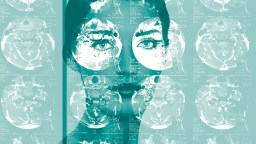Neuropsych
All Stories
Does the thought of death make you anxious? A new study suggests that the fear of mortality isn’t really about the afterlife at all.
Why is it so hard to agree with some people? They are literally wired to value different things than you.
If you cloned yourself perfectly, would the clone have the same mind? At the heart of this question is an investigation into what – and where – consciousness is.
▸
4 min
—
with
Where is your mind? Professor Daniel Siegel answers this question with a more revolutionary one: Where isn’t your mind?
▸
6 min
—
with
Here are two cutting-edge neuroscience technologies that may enable us to treat conditions like blindness, epilepsy and Alzheimer’s.
▸
4 min
—
with
Scott Aukerman, the co-founder of ‘Between Two Ferns’, developed humor early on as a way disarm bullies. He knows from experience that, in comedy, your intentions really matter.
▸
3 min
—
with
Is there such a thing as boredom, or is it an all-encompassing term for a variety of root causes like apathy, frustration, or depression?
Researchers study the “paradox of happiness” to find out how get into “flow activities” that would make us happiest.
They have the same feelings as normal people. It’s how they make decisions that’s different.
Here’s one use for all that harvested personal data that you might not object to. Algorithms and big data are no longer just for profit; they can bring us self-awareness and growth.
▸
4 min
—
with
The pair of papers suggest that sleep is crucial in order to wipe out memories. Yep – it turns out that, sometimes, it’s smart to forget.
Two recent studies reveal the effects of LSD on the brain.
A new study makes a surprising finding on the intelligence of psychopaths, often portrayed as evil geniuses in popular culture.
A study analyzes the relationship between how fast people speak and how much information they actually relate.
Oasis had it right: stop crying your heart out. Psychologist Paul Bloom argues that empathy may be working against our best interests, and that compassion may be a better strategy.
▸
8 min
—
with
New research reveals that people find those who use profanity more honest and trustworthy.
The benefits of actively playing chess are supported by numerous studies.
Do you get antsy when there’s nothing to do?
Inhaling through the nose activates the regions of the brain associated with memory and emotion.
Artists who become famous for their children’s work get relegated to the ‘sunshine and candy’ category of our minds. But it turns out Dr. Seuss had serious political bite.
Amy Herman teaches visual intelligence to doctors, intelligence analysts and the NYPD. Here she runs through how to make decisions you can defend under questioning: ones that are perceptive and informed.
▸
5 min
—
with
New research shows how studying music helps the brain create new connections.
The happiest moments of our lives are when we lose ourselves – in art, in exercise, in love. According to Harvard’s Diane Paulus, being able to ‘play’ and engage in something outside of ourselves is a valuable respite from our egos.
▸
4 min
—
with
A new study suggests the brain gets more desensitized to lying with each lie you tell.
Romantic advice from some of humanity’s biggest thinkers.
Want to improve your mood? This study recommends you get walking, even for a short time, and even if your surroundings aren’t picturesque.
Just imagining movement fires the same neurons as if we were actually moving. A new study shows we can wake our sleeping mind to practice motor skills in our dreams.
Standardized testing is like bringing a knife to a gun fight. It’s not totally useless, but it does misunderstand the situation. The Imagination Institute’s Scott Barry Kaufman suggests a more three-dimensional search for intelligence.
▸
5 min
—
with
Psychologists suggests tactics for confronting offensive speech.
Turns out no one is immune to being prejudiced. New research suggests that people of higher and lower cognitive ability are equally inclined, but direct their prejudice towards different social groups.





























